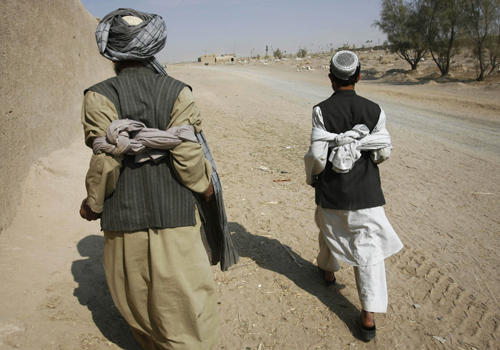– Arthur Conan Doyle, The adventure of the speckled band
Cheetahs and baboons outside the walls: terrifying! Obviously we need walls, and guardians on the walls. But what if the guardians are corrupt?
I heard maybe it's all Plato's fault for saying it's OK for the guardians to tell lies:
“Then if any one at all is to have the privilege of lying, the rulers of the State should be the persons; and they, in their dealings either with enemies or with their own citizens, may be allowed to lie for the public good.”
This kind of stuff gives education a bad name. Irving Kristol for example is quoted as saying:
"There are different kinds of truths for different kinds of people. There are truths appropriate for children; truths that are appropriate for students; truths that are appropriate for educated adults; and truths that are appropriate for highly educated adults, and the notion that there should be one set of truths available to everyone is a modern democratic fallacy. It doesn't work."
Well, no, Irv, I don't think so. First of all, get lost. Second, you might as well say: “There are aerodynamics appropriate for children, aerodynamics for adults, aerodynamics for pilots, and aerodynamics for aeronautical engineers.” Either you're flying or you're not. If you're not, as Eeyore said, “....it's all the same at the bottom of the river”, and the “appropriate” level of truth at which you understand that you're not flying is the same for everybody, which is to say, crashing.
Telling lies to preserve the truth is the same fallacy as destroying the village to save it, or abandoning free market principles to save the free market. To use Irv's own words: it doesn't work. The argument has been debunked by people who have thought about it a lot, like Shadia Drury.
However, at my level, the level of an ordinarily outraged Canadian citizen, the argument that the guardians know best what's good for us, and furthermore don't have to tell us what they're doing, and that, like Plato's guardians, they can tell “noble lies” in the public interest, is not only obnoxious but also the stuff that police states are made of, witness the systematic assault on the American Constitution by people who are sworn to uphold the American Constitution.
Or, to quote Uri Avnery, Israeli citizen:
“War – every war – is the realm of lies. Whether called propaganda or psychological warfare, everybody accepts that it is right to lie for one’s country. Anyone who speaks the truth runs the risk of being branded a traitor.”
This gets down to the “national security” trumps “open government” conflict being played out, particularly in NATO countries like Canada, where casual attacks on sacred institutions created by one thousand years' of political evolution, institutions like habeas corpus, should lead to insurrection. I'm doing my best, and fortunately, we still seem to have an independent judiciary.
On the other hand we have Jim Judd, a director of the Canadian Security and Intelligence Service, who is quoted by Craig Forcese as follows: “Democracies have taken a long period to develop and their values, laws and institutions continue to provide inspiration to those without the luxury of living in one.”
I take strong exception to any unelected Canadian Crown servant describing democracy as a “luxury”. The Canadian rule of law is a hard-earned right, derived from centuries of experience and relentless determination. The most part of the strength of Canadian democracy is not that it is protected from without by security services, but that is protected from within by open government and the will of its citizens to be governed openly.
Then, there's Kurt Vonnegut: “ There can be no doubt that the Allies fought on the side of right and the Germans and Japanese on the side of wrong. World War II was found for near-Holy motives. But I stand convinced the the brand of justice in which we dealt, wholesale bombings of civilian populations, was blasphemous. That the enemy did it first has nothing to do with the moral problem.”
Canada has fought many wars at the back of freedom and democracy. We've signed up for all of international humanitarian law. This is no time for weasel words.

From the ©New York Times Archives













































